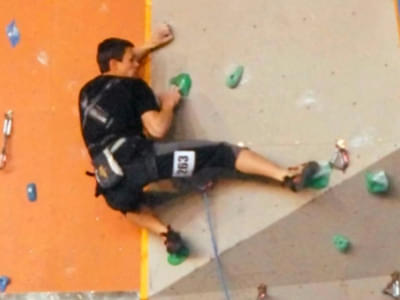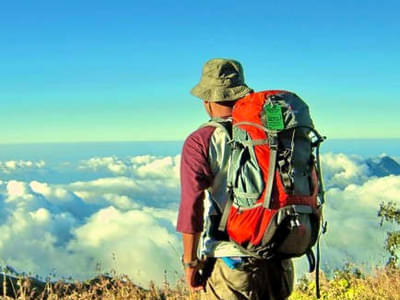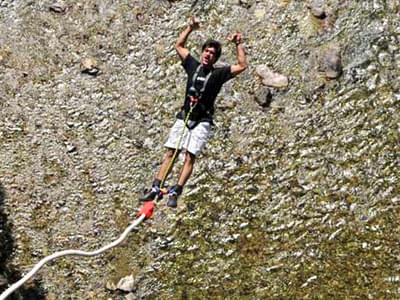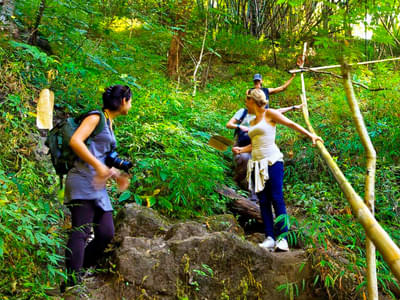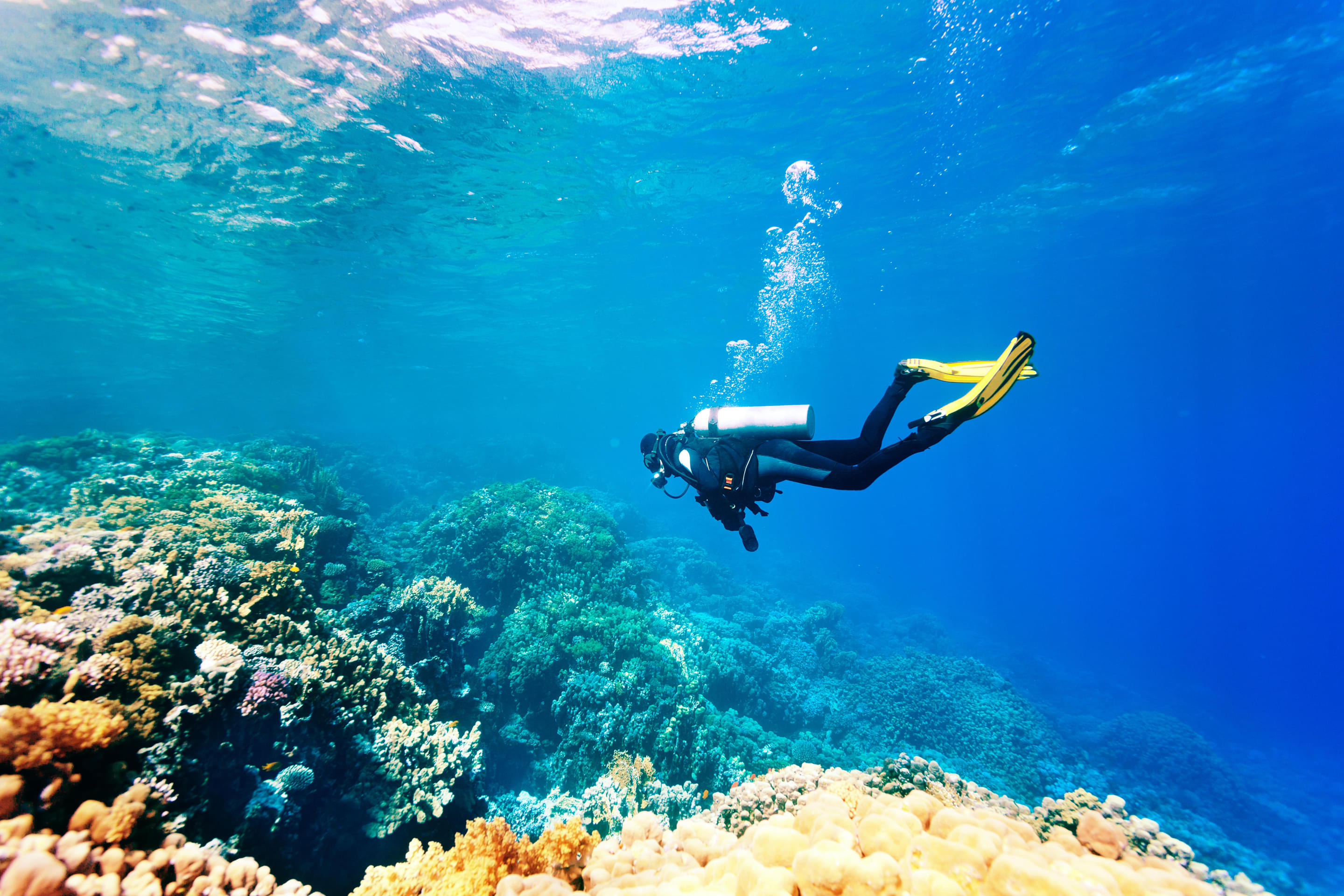Scuba Diving in Andaman and Nicobar
Andaman and Nicobar Scuba Diving Packages | Duration | Price |
|---|---|---|
| Scuba Diving In Andaman | 30 mins | INR 3,500 |
| Scuba Diving in Havelock Island | 20 mins | INR 3,500 |
| Shore Scuba Diving at Neil Island, Andaman | 1 hour | INR 4,025 |
| Boat Scuba Diving at Neil Island, Andaman | 3 hours | INR 6,325 |
Scuba diving in Andaman is an exciting activity that gives you a unique glimpse into the beautiful underwater world of the Andaman and Nicobar Islands. These islands are a scuba diver's dream, allowing you to embark on thrilling dive adventures through underwater caves and dramatic swim-throughs.
With unique underwater environments and a variety of marine creatures to discover, North Bay Island, Neil Island, and Andaman's Havelock Island are the ideal locations for scuba diving. When it comes to scuba diving in Andaman cost, one of the key draws for tourists is the relative affordability of the activity. It starts at about INR 4,000 per dive, which is a lot less than other popular diving spots.
The dry season is from November to April, and this is the best time to go to Andaman and Nicobar Islands scuba diving. The calm seas and good diving conditions during these months make it a great time to explore the ocean waters with Andaman Tour Packages.
Also, Andaman's dramatic seascapes and pristine marine environment are home to a wide range of marine life, including colourful corals, rare fish species, turtles, rays, and even sharks. So, if you want to have a unique underwater experience, look for a good offer on Scuba diving in Andaman prices and go for it.
Andaman and Nicobar Scuba Diving Packages
Best Scuba Diving Destinations
Our Partners
Newly Added Experiences
Tourism Board Alliances
Andaman and Nicobar Scuba Diving FAQs
When is the best time to do Scuba Diving in the Andamans?
Is Scuba Diving safe on the Andamans?
Which are the best places to do Scuba Diving in the Andamans?
Lighthouse- Best for night diving, it is best for night diving for PADI/SSI certified divers. One can come across hard and soft corals, along with interesting water beings like Humpback Parrotfish, Octopus, Fusiliers, and other underwater marines.
Mac Point- This is famous to spot Dugongs and rugged hard corals which actually add on to the beauty.
Barracuda City- An unexplored destination for scuba diving in Andaman. Swim with the turtles, and explore the deep secrets of marine wonderland. Bala Reef, Little Andaman Island: This is the perfect spot to witness varied kinds of corals, of different hues. It indeed is much like picture-perfect down under.
There are many more such places for scuba diving in Andaman and nearby. The price for this adventure starts from INR 2500 and goes up to INR 6500 and more. One should add this activity to their bucket list if planning for Andaman vacationing.
Can a non swimmer Dive in the Andamans?
Can someone do scuba diving who hasn’t done it before?
Is there any age limit to do Scuba in the Andamans?
Who can dive?
Are there any prerequisites to scuba diving?
Is learning to dive difficult?
How long does it take to become a certified scuba diver?
PADI Scuba Diver Course- In 3 days of duration, one can get water skills and 2 open water dives with maximum depth of 12 meters/40 feet. The license is valid worldwide. For this course, you need to carry certain swimming knowledge.
Open Water Diver- This will allow to learn underwater photography skills, night diving and deep diving. With the duration of 1-2 days, you can be Certified Open Water Diver. Minimum age is 10 years.
Advanced Open Water Diver (1-2 days)- The course is designed to experience deeper dives for 18-30 meters/60-100 meters. Minimum age is 12 years.
Master Scuba Diver- For 15 days, one will learn about Advanced Open Water- Rescue Diver and Minimum 50 logged dives.
How old do I have to be to become a certified diver?
Are there any special qualifications or considerations to participate in a scuba class?
Do I have to be a great swimmer to be certified as a PADI Open Water Diver?
What equipment do I need before I take scuba lessons?
How much money does it costs to do scuba diving in the Andamans?
It varies according to the scuba diving instructor or the school through which you are taking your scuba diving lessons. There are several certified schools and diving coaches who conduct scuba diving for tourism purposes. On an average a 2 day 4 diving package may cost you around Rs. 10,500. Some travel operator which includes these activities in Andaman package at a good price.
What modes of payment will be accepted by the diving centers?
I want to be a diver, but I can’t afford the course. What do I do?
Check out about tour packages of Andaman and Nicobar Islands.
How are the medical facilities in Andaman?
What are the most common injuries or sickness associated with diving?
My ears hurt when I dive to the bottom of a pool. Won’t they hurt when I scuba dive?
I need vision correction. Is that a problem?
What are the medical conditions that impede diving?
It is generally not recommended for people with the following conditions to scuba dive:
•People who suffer from breathing problems.
•People with ear problems and those who had an ear surgery in the last 12 months.
•People suffering from cold, flu or congestion. We recommended that people with a cold should not take decongestion medication in order to dive, this will create a problem underwater, as this can wear off and create chaos while ascending to the surface.
There are several other reasons for which a diving student will be asked to prescribe a doctor. They are:
•If you have a history of heart or lung disease
•If you use prescription or non-prescription medications
•If you suffer from shortness of breath
•If you are having repeated trouble clearing air spaces (equalization)
•If you experience unexplained loss of consciousness or “blackout”
•If you had suffered from of nausea or vomiting recently.
Are there any special concerns that women need to be aware of?
What if it rains?
What does the diver’s Never-to-do checklist look like?
•Never drink and dive, as intoxication can put a diver in a very dangerous and compromised position. An intoxicated diver won’t be able to make sane judgment and rational decision jeopardizing his safety in water.
•Don’t dive in a full stomach, schools says that you should wait for at least two hours after your meal to dive. Diving in full stomach or after a heavy meal will make it uneasy for you to move in the water, there is a possibility of acquiring cramps and making it impossible for you to breathe.
•It is a strict rule to never conceal any kind of medical conditions that you are aware of yourself.
Is there a decompression chamber on Havelock?
In the movies and on TV, divers are always running into sharks or eels. Should I be concerned about marine animals?
What are the various day & night tour packages you can book with Thrillophilia?
- 10 Days 9 Nights Andaman and Nicobar Tour Packages
- 5 Days 4 Nights Andaman and Nicobar Tour Packages
- 11 Days 10 Nights Andaman and Nicobar Tour Packages
- 3 Days 2 Nights Andaman and Nicobar Tour Packages
- 8 Days 7 Nights Andaman and Nicobar Tour Packages
- 9 Days 8 Nights Andaman and Nicobar Tour Packages
- 4 Days 3 Nights Andaman and Nicobar Tour Packages
- 6 Days 5 Nights Andaman and Nicobar Tour Packages
- 7 Days 6 Nights Andaman and Nicobar Tour Packages
Andaman and Nicobar Scuba Diving Reviews

